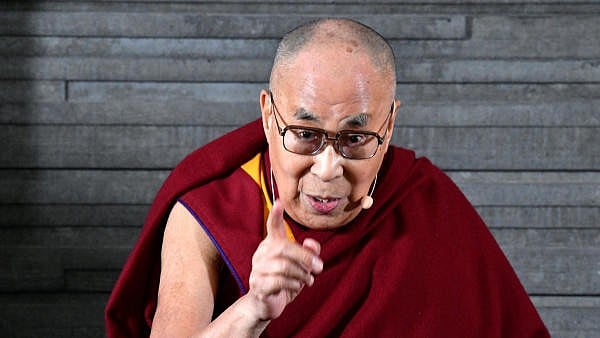
Tibetan spiritual leader Dalai Lama
Credit: Reuters File Photo
When Lhamo Thondup was born at Taktser in Amdo in northeastern Tibet on July 6 in 1935, his small farmer parents had no inkling that he would someday be revered not only by the Tibetans and the Buddhists around the world, but also by countless others. Life, however, took a turn for Lhamo when he was just two. He was identified as the ‘reincarnation’ of the 13th Dalai Lama, Thubten Gyatso, who had passed away in 1933. He was taken to Lhasa and was enthroned as the 14th Dalai Lama in February 1940, a few months before his fifth birthday.
Over the next 85 years, with Tibetans venerating him as a manifestation of ‘Avalokiteshvara’ and the Communist Party of China portraying him as a ‘splittist’, the world saw him emerge as the global icon of compassion, who did not shun the path of peace and non-violence even while leading his people in resisting the aggression by one of the ‘Big Powers’.
The monk, who won the Nobel Peace Prize in 1989, is set to turn 90 on July 6. The speculation is rife that he might speak on the issue of his reincarnation – the 15th Dalai Lama – ahead of or during the celebration of his 90th birthday in Dharamshala, a hill town in Himachal Pradesh, where he has been living in exile since 1960. He had secretly left Lhasa to evade detention by the Chinese People’s Liberation Army on March 17, 1959, night and, nearly a fortnight later, entered India.
As he grew old, the Dalai Lama himself was asked about his reincarnation on several occasions in the past. He replied, with his characteristic smile, that he would possibly live 110 years, and hence he was not in a hurry to speak about his successor. He also said that his reincarnation would be born in the “free world”, hinting that the 15th Dalai Lama would not be found in Tibet, under occupation of China since 1949-50, but among the Tibetans, living in exile in India and around the world.
The Dalai Lama has been arguing for “genuine autonomy” – not independence from the Chinese Government’s rule – for Tibet. Beijing, however, still calls him a “separatist” and accuses him of running a campaign to split China. India often came under pressure from China to impose curbs on him and shut down the Tibetan Government in Exile, formally known as the Central Tibetan Administration (CTA) and based in Dharamshala.
New Delhi, however, told Beijing that the Dalai Lama was an honoured guest of India and he was always free to visit any part of the country.
To pre-empt Beijing’s bid to take advantage of the chaos of claims and counter-claims over his reincarnation and fizzle out the global campaign against the occupation of Tibet by China after his demise, the Dalai Lama not only encouraged the exiled Tibetans in India and around the world to embrace democracy, but also transferred his political powers to the democratically elected Sikyong (or prime minister) of the CTA in 2011.
Beijing, however, will most certainly prop up a candidate for the spiritual leadership of the Tibetans, countering the one the CTA, guided by the indication of the incumbent Dalai Lama, would endorse. Beijing had in 1995 chosen Gyancain Norbu as the 11th Panchen Lama, rejecting the Dalai Lama’s choice, Gedhun Choekyi Nyima, who had not been seen in public in the past 30 years. Norbu met Chinese President Xi Jinping on June 6 amid speculation that Beijing would use him to accord legitimacy to its choice of the 15th Dalai Lama. The CPC recently asked the faith groups to remain alert to the “hidden dangers” in the religious field and called for resolute resistance against “foreign infiltration”. He stressed that religious practices in China must be systemically Sinicised. Norbu, whom the CPC appointed as the Panchen Lama, also promised Xi that he would do his best to make Tibetan Buddhism more Chinese.
